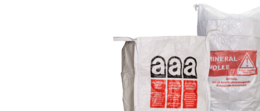Material Information
Aluminum
is extremely versatile.
Outstanding properties such as low density (low weight), extremely high strength, extraordinary durability, high conductivity for electricity and heat, resistance to corrosion and weathering, impermeability (to gases, liquids, light, i.e. resistance to environmental influences), easy machinability and high cost-effectiveness in production are the hallmarks of aluminium products.
- A particular advantage of used aluminum products is their excellent reusability.
- The same or similar products can be manufactured from secondary aluminum without any loss of quality.
- Compared to the production of primary aluminum, remelting saves up to 95% of energy.
With only 5% of the energy originally required for production, aluminum can be reused as often as required. This makes the material ideal for recycling cycles.
Properties:
- Lightweight: Aluminum is a lightweight metal that weighs less than other metals such as steel or copper. This makes aluminum bottles, for example, light and easy to transport.
- Robust: Aluminum is a very resistant material that is highly resistant to shocks and impacts. This means that aluminum bottles, for example, can be used even in the harshest conditions.
- Corrosion resistance: Aluminum is a corrosion-resistant material that does not rust or corrode when it comes into contact with air or water. This means that aluminum bottles, for example, can also be used in humid environments.
- Recyclability: Aluminum is a highly recyclable material that can be easily recycled. This means that aluminum bottles, for example, can be reused after use, which helps to reduce the environmental impact.
- Impermeability: Aluminum bottles are generally impermeable to light, air and moisture. This keeps the contents in the bottle fresh and unchanged in taste.
Areas of application:
Aluminum is used in many areas of industry due to its high strength and low density. Here are some of the most important areas of application for aluminum:
- In the packaging industry, aluminum is mainly used for cans, bottles and jugs. Hazardous goods-approved (UN-approved) aluminum packaging is also available on the market.
- Construction: Aluminum is used to manufacture window frames, facade cladding, kitchen appliances, ladders, scaffolding and guttering.
- Electronics: Aluminum is used to manufacture heat sinks and housings for computers, smartphones and other electronic devices.
- Aviation industry: Aluminum is often used in the manufacture of aircraft and spacecraft, as it reduces the weight of the aircraft and thus saves fuel.
- Automotive industry: Aluminum is also used in the automotive industry to reduce the weight of vehicles and thus improve fuel efficiency.
In summary, aluminum is an important material in the industry and is used in many applications due to its high strength and low density. Although aluminum offers some advantages such as corrosion resistance and low density, there are also disadvantages such as its lower strength compared to other metals and the energy-intensive manufacturing process. It is important to weigh the pros and cons of aluminum and explore alternative materials to reduce the environmental impact and promote sustainability in the industry.








